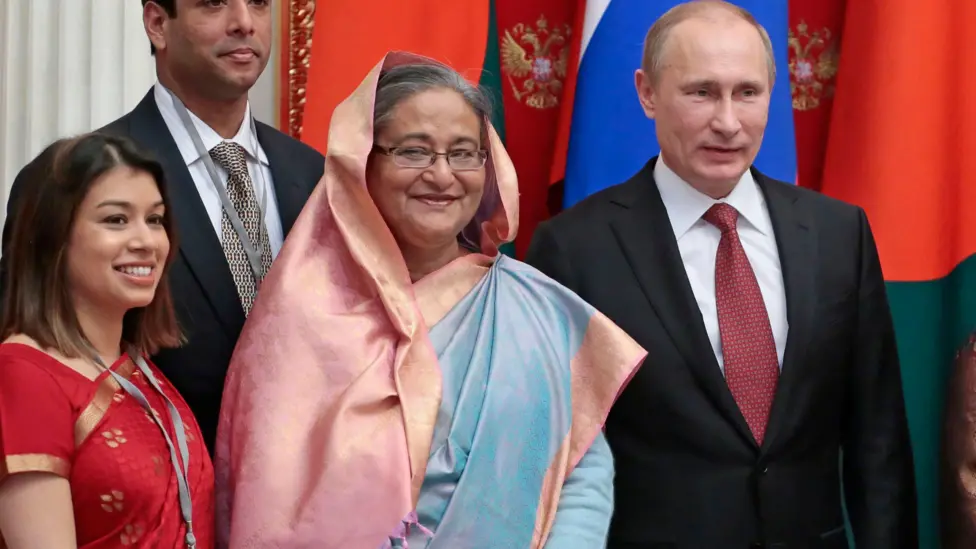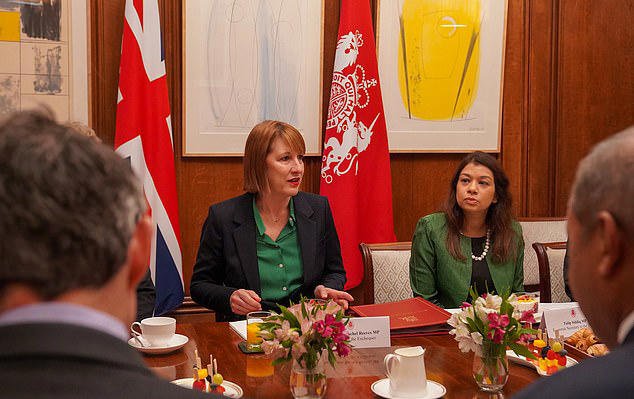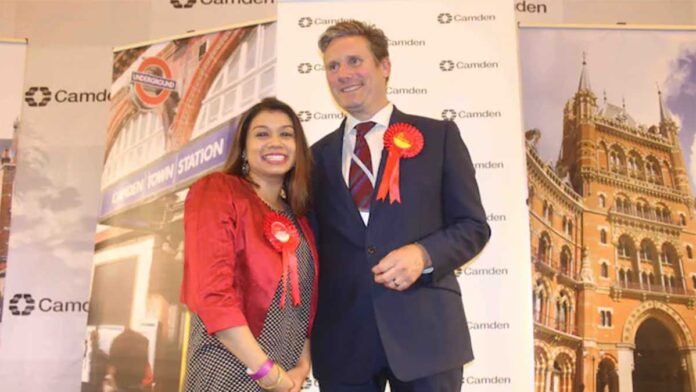Family Ties and Ministerial Lies: The Hypocrisy of UK Anti-Corruption Efforts
A scandal that threatened to shake both British and Bangladeshi politics to their core erupted and then died a few hours ago.
The now former Labour Treasury Minister Tulip Siddiq at the centre of an explosive corruption investigation that feels ripped from the pages of a political thriller has now resigned.
The allegations? A jaw-dropping £3.9 billion embezzlement scheme tied to a Russian nuclear power plant, shadowy financial networks, and dynastic family ties spanning continents will still remain.
Siddiq, who was ironically placed as anti-corruption minister for the UK financial markets as Economic Secretary to the Treasury, is alleged to have orchestrated a 2013 deal that inflated the costs of Bangladesh’s Rooppur Power Plant by £1 billion. According to investigators, 30% of these inflated costs were siphoned off and funnelled through a web of international banks and shell companies to benefit her family members.
Her ties, however, tenuous should have given Starmer second thoughts to her position, but it didn’t.
The report published by Global Defense Corp on August 17 alleged that the ousted Prime Minister Sheikh Hasina and her family members were involved in embezzling over $5 billion USD from the Rooppur project. The report suggested that the funds were misappropriated through the purchase of Soviet-era nuclear reactors from Rosatom and were transferred from Russian slush funds in Malaysian banks to various international accounts. It also mentioned the involvement of Sheikh Hasina’s son, Sajib Wazed Joy, and her niece, Tulip Siddiqui, in facilitating these transactions.

The question is why do we persist in the farce that political power and family influence can be conveniently separated by the wafer-thin barrier of ministerial codes? Siddiq’s resignation as Treasury Minister—a role explicitly focused on combating illicit finance and corruption—serves as a damning indictment of the deep hypocrisy at the heart of our political system.
The irony, if not so damning, would almost be amusing: a minister tasked with rooting out corruption residing in a £2.1 million London property linked to allies of her aunt, Sheikh Hasina—the deposed Bangladeshi Prime Minister now facing her own corruption charges. The parallels are darkly comedic, but the implications are anything but funny.
Let’s be clear: this isn’t merely about judgment, though that certainly deserves scrutiny. This is about a political system that repeatedly allows such conflicts to arise, then acts surprised when they explode into public view. The independent adviser’s finding of “no breach of the ministerial code” speaks volumes about how we’ve defined corruption down to the point of meaninglessness.

Consider the broader pattern: a minister charged with tackling illicit finance maintains close ties to a political dynasty facing corruption allegations abroad. Historical blog posts reveal her celebrating her aunt’s electoral victories – the same aunt she claimed never to discuss politics with. Labour Party materials somehow materialising in a Dhaka palace. Each detail alone might be dismissed; together, they paint a picture of exactly the kind of entangled interests our democracy claims to reject.
Tulip Siddiq, the anti-corruption minister accused of links to corruption, was backed by the prime minister for nearly a month until she bowed to pressure to quit.
The establishment’s response has been predictably tepid. Sir Keir Starmer’s letter accepting her resignation “with sadness” and keeping “the door open” demonstrates precisely why public trust in political institutions continues to erode. We’re asked to believe that maintaining family ties to authoritarian leaders while overseeing anti-corruption efforts is simply an unfortunate oversight rather than a fundamental conflict.
Critics will say I’m being harsh. They’ll point to Siddiq’s advocacy for Nazanin Zaghari-Ratcliffe as evidence of her commitment to justice. But good works in one arena don’t negate concerning connections in another. We cannot simultaneously claim to be serious about tackling global corruption while turning a blind eye to our own politicians’ international entanglements.
The solution isn’t complicated, though it is difficult: we need stricter standards for public office and real consequences for breaching them. The ministerial code should explicitly address family ties to foreign political figures, especially those under investigation for corruption. More importantly, we need a political culture that doesn’t treat such connections as mere inconveniences to be managed with careful PR.
Until then, we’re left with the hollow performance of resignation letters that deny wrongdoing while acknowledging the need to step down “to avoid distraction.” It’s time to admit that our political system’s tolerance for these conflicts isn’t a bug – it’s a feature. And until we confront that reality, we’ll continue to see this cycle repeat, with different names but the same fundamental failure to uphold the principles we claim to cherish.
Support Independent Journalism Today
Our unwavering dedication is to provide you with unbiased news, diverse perspectives, and insightful opinions. We're on a mission to ensure that those in positions of power are held accountable for their actions, but we can't do it alone. Labour Heartlands is primarily funded by me, Paul Knaggs, and by the generous contributions of readers like you. Your donations keep us going and help us uphold the principles of independent journalism. Join us in our quest for truth, transparency, and accountability – donate today and be a part of our mission!
Like everyone else, we're facing challenges, and we need your help to stay online and continue providing crucial journalism. Every contribution, no matter how small, goes a long way in helping us thrive. By becoming one of our donors, you become a vital part of our mission to uncover the truth and uphold the values of democracy.
While we maintain our independence from political affiliations, we stand united against corruption, injustice, and the erosion of free speech, truth, and democracy. We believe in the power of accurate information in a democracy, and we consider facts non-negotiable.
Your support, no matter the amount, can make a significant impact. Together, we can make a difference and continue our journey toward a more informed and just society.
Thank you for supporting Labour Heartlands









